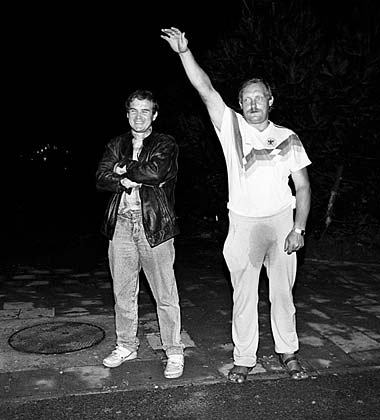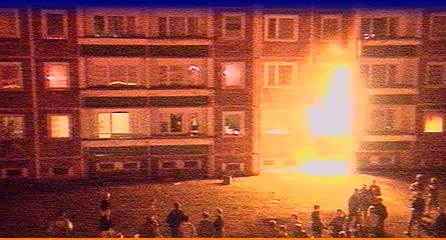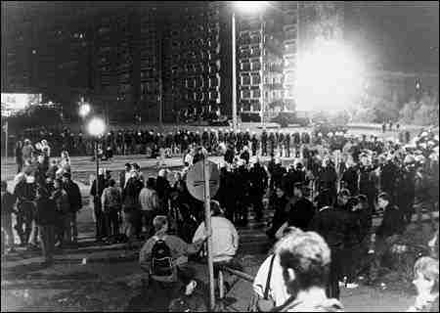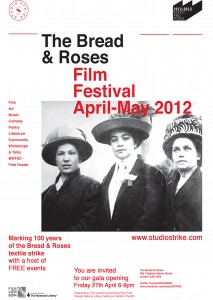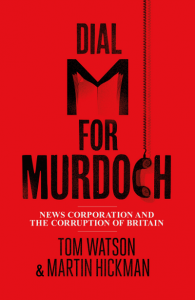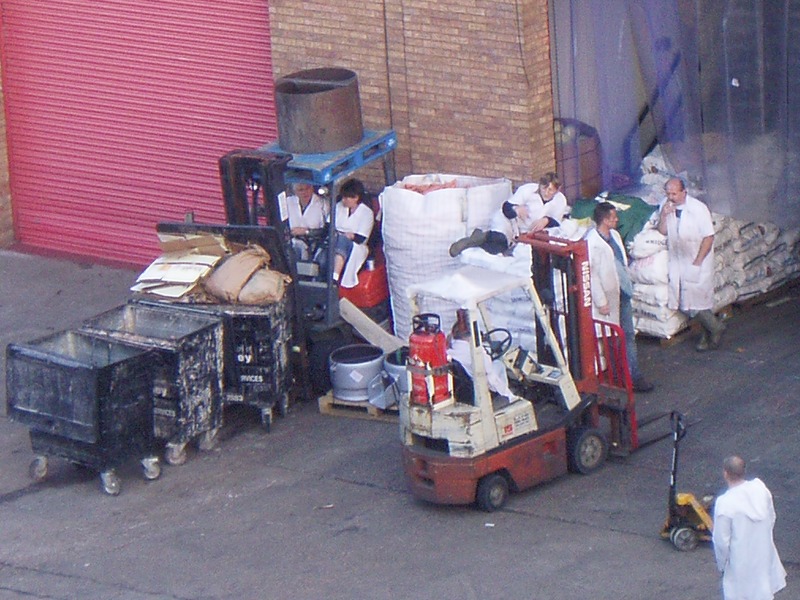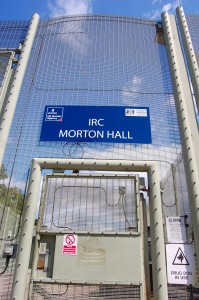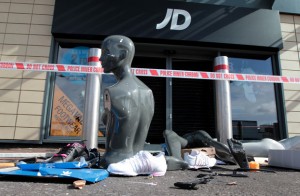Rostock, ville portuaire d’ancienne Allemagne de l’Est, un week-end de l’été 1992; face à des conditions économiques rudes et un taux de chômage grimpant, de jeunes néo-fascistes s’amassent en bas de barres d’HLM dans le quartier isolé de Lichtenhagen et tournent leurs frustrations vers un groupes de travailleurs immigrés. La nuit tombée, la tension monte et les perturbateurs empoignent des pavés pour briser les vitres de l’immeuble, visant en particulier le refuge des demandeurs d’asiles (en grande partie originaire du Vietnam).
Les émeutes dureront trois jours, jusqu’à l’incendie du refuge au cocktail Molotov par les émeutiers, provoquant l’évacuation de ses habitants. La réaction de la police est inadaptée, presque conciliante envers les néonazis; sans intervenir franchement, les policiers encadrent les violences pour éviter les débordements, mais aucune arrestation n’a lieu. De la même manière, près de 3000 spectateurs assistent aux événements, certains en tant qu’observateurs passifs, d’autres apportant leur soutien aux casseurs en applaudissant leurs actes. Durant ce long week-end, une manifestation antifasciste est organisée par des habitants de Rostock; les forces de l’ordre préféreront arrêter ces pacifistes plutôt que les insurgés néonazis. Résultat : 60 des 80 individus détenus au cours du dimanche soir sont des manifestants antiracistes.
Juste après les émeutes, le parti Démocrate Chrétien modifie la Constitution et une des lois piliers de l’après seconde guerre mondiale, rendant désormais possible l’exclusion des démendeurs d’asile politiques hors du sol Allemand. Plutot que de s’en prendre aux causes des événements de Liechtenhagen, les hommes politiques se sont attaqués aux victimes; après avoir eu leurs habitations temporaires pillées et incendiées, les travailleurs immigrés vietnamiens se trouve désormais menacés de déportation.
La Vérité Meurt à Rostock montre les évènements de ce pogrom de manière chronologique, tels qu’ils se sont déroulés. Des images amateurs filmées par les immigrés, barricadés dans leurs appartements, témoignent de l’agressivité ambiante; elles sont accompagnées de séquences au plus proche des violences, tournées de nuit par les réalisateurs du documentaire Marc Saunders et Siobhan Leary. Enfin, des interviews exclusives avec des participants aux émeutes, des réfugiés et des membres de la police présentent un tableau complet de la situation, des mentalités, et permettent au téléspectateur de mesurer la portée du racisme dans une Allemagne à peine réunifiée. Le documentaire, commandé par la chaîne Anglaise Channel 4, est un parfait exemple de journalisme d’investigation basé sur l’expertise d’une communauté.
Problèmes liés à l’immigration, contexte de frustration générale aboutissant à la montée des extrêmes, inefficacité ou indifférences des forces publiques, les questions abordées dans ce film sont autant de thèmes qui resurgissent actuellement dans les débats publics en Europe. Compte tenu des résultats records du Front National au premier tour des élections présidentielles, rééditer La Vérité Meurt à Rostock en 2012 en France prend tout son sens. Loin d’être comparable d’un point de vue politique, des parallèles peuvent êtres tracés entre les angoisses et les tensions de 1992, et les préoccupations populaires d’aujourd’hui.
À l’occasion du vingtième anniversaire des émeutes de Rostock, Spectacle Productions ressort la version française de La Vérité Meurt à Rostock. Le DVD d’une heure vingt est disponible en vente ici.
Cliquez La Vérité Meurt à Rostock pour plus d’articles sur le blog
Spectacle homepage
Devenez amis avec Spectacle.Docs sur Facebook
Suivez SpectacleMedia sur Twitter

